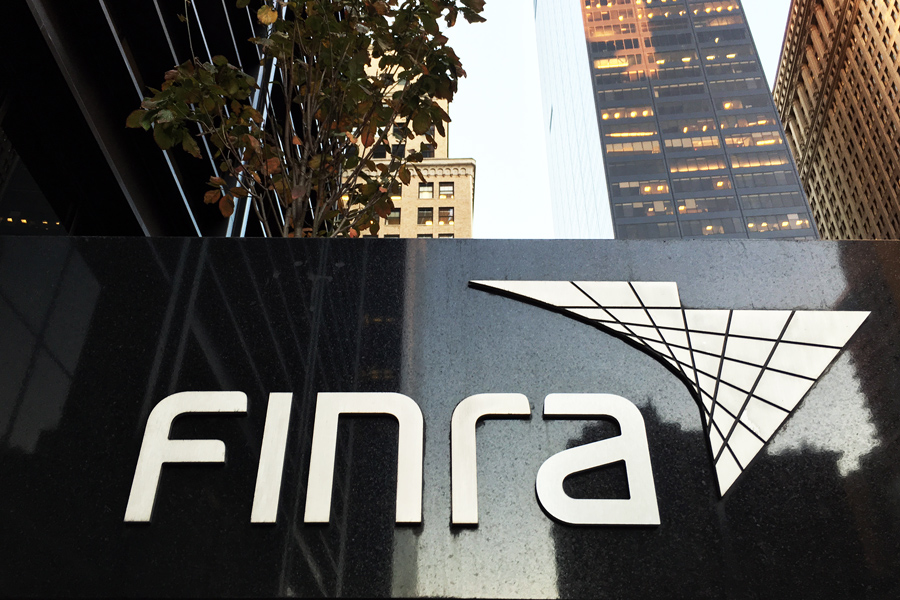

In the first reversal of a five-year downward trend, the Financial Industry Regulatory Authority Inc. posted a 43% jump in fines in 2020, to $57 million from $40 million in 2019, according to an annual analysis of Finra disciplinary actions by Eversheds Sutherland (US).
Fines in 2020 were in line with 2017 and 2018, when Finra ordered $65 million and $61 million in fines, respectively, the law firm said in a release. In 2016, the broker-dealer self-regulator ordered a record-setting $174 million in fines.
Finra continues to target anti-money laundering violations and appears to have focused much of its efforts on protecting retail investors, said firm partners Brian L. Rubin and Adam C. Pollet.
Amid the overall increase in fines last year, the number of cases with very large fines also increased slightly. Finra assessed ten fines of $1 million or more, totaling $38.6 million, compared with $28 million in such fines in 2019.
In 2020, restitution ordered by Finra increased 29%, to approximately $36 millio,n from $28 million in 2019; that's up 38% from the $26 million ordered in 2018.
Monetary sanctions ordered by Finra in 2020, which encompasses fines, restitution and disgorgement, totaled $94 million, or a 34% increase from the $70 million in total sanctions ordered in 2019. The total sanctions ordered in preceding years were significantly higher, however: $124 million in 2018; $150 million in 2017; and $207 million in 2016.
The number of disciplinary actions reported by Finra were up just 1% in 2020 — to 595 from 591 in 2019 — and down 7% from the 638 disciplinary actions in 2018.

While industry statistics pointing to a succession crisis can cause alarm, advisor-owners should be free to consider a middle path between staying solo and catching the surging wave of M&A.

New joint research by T. Rowe Price, MIT, and Stanford University finds more diverse asset allocations among older participants.

With its asset pipeline bursting past $13 billion, Farther is looking to build more momentum with three new managing directors.

A Department of Labor proposal to scrap a regulatory provision under ERISA could create uncertainty for fiduciaries, the trade association argues.

"We continue to feel confident about our ability to capture 90%," LPL CEO Rich Steinmeier told analysts during the firm's 2nd quarter earnings call.
Orion's Tom Wilson on delivering coordinated, high-touch service in a world where returns alone no longer set you apart.
Barely a decade old, registered index-linked annuities have quickly surged in popularity, thanks to their unique blend of protection and growth potential—an appealing option for investors looking to chart a steadier course through today's choppy market waters, says Myles Lambert, Brighthouse Financial.
